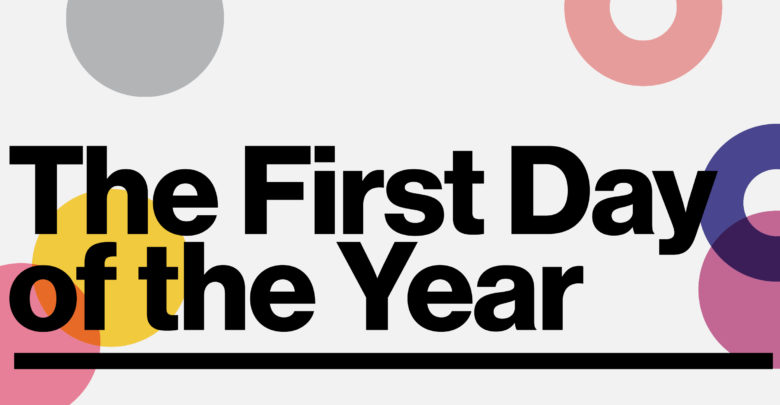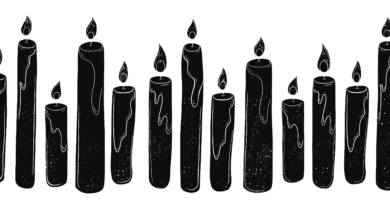 Peter Elima
Peter ElimaThe first day was October 15. In the year 1582, Catholic Pope Gregory XIII introduced the humbly named Gregorian calendar in order to improve upon the seasonal shift that was experienced under the Julian calendar system. While almost identical to the previous system, the introduction of the Gregorian calendar created a ten-day difference between the two. To account for this, Pope Gregory advanced the month of October from the fourth to the fifteenth, making October 15 the first accurate day by modern standards.
But what is accurate time keeping anyways? The orbit of Earth doesn’t abide by a calendar and each sunrise doesn’t come with a name attributed to Hellenistic gods. These are human traditions. Although they are respected and often appreciated for giving order to our sluggish cyclonic solar system which governs the seasons and the sunsets of our planet, they can sometimes be constraining. We often wait until Monday to get a start on something pressing in their lives, and put off life goals until next year. We wait for Monday or the first of the month or New Year’s Day before we even try to remedy something we see wrong in our lives. Why is that? Where does this human tendency to live by the rule of periodic benchmarks come from?
I attempted to find an answer to this question at the Hanson Lifestyle and Fitness Centre on campus. One of the most widespread New Year’s resolutions is to get into shape. This is where numerous university students go every year in order to realize this dream. Krystle Johner and Devon Kippen, supervisor and assistant supervisor of the center, see all these students in their everyday life and therefore have a unique view of this annual tradition.
January 1 is a time of new beginnings for a wide variety of people. It’s the first sentence in a new chapter, the dawn of a new era, or simply the start of something new. But for people who live, work, and learn on campus, January takes a back seat to September. Krystle says that as a rush period, if September isn’t greater than January it is certainly its equal. She attributes this mainly to students settling into new routines as the school year fires back up again. As Krystle puts it, September is, “a new school year, a fresh start.”
Regardless of which month takes on the role of the year’s beginning, the question remains: why do the benchmarks of the year hold such weight in regards to our actions? According to Devon, it’s a matter of community. When it’s January or September, two commonly perceived beginnings of the year, or even on a smaller scale when it’s the first of the month or a Monday, everyone is getting back into the swing of things. When everyone else is trying to make change in their lives and everyone is putting themselves out there, the individual feels less alone in their endeavors.
Taking on big change in our lives is easier when we do it as a community, but why does the community choose the Mondays and the firsts instead of any other time of the week or month? As Krystle says, “we’re creatures of habit.” She posits that when the individual has an inkling of a desire to make some kind of change, a few days in between the formation of that desire and the execution gives them some time to warm up to it. Krystle suggests that the individual thinks, “if it’s Friday going into the weekend, I’ll start on Monday.” After all, motivation has inertia and for some people it can take quite a bit of time to get the ball rolling and make meaningful change.
The problem that comes with this method of growing is every major change in one’s life comes with a wind up time tacked on. Taking a few days to mentally and emotionally prepare to take the reins of your life may provide a much needed warm up period, but couldn’t those days be put to better use? “[If] we just tried to change one thing the minute we decided we wanted to,” Krystle suggests, “[those changes] would add up over time and consistency in those little changes would bring us closer to [our] goal.”
This idea of taking on incremental change often rather than significant change in rhythm with the week, month, or year seems like it should be more popular. Being able to make changes on one’s own schedule rather than the calendar’s increases agency. More often than not, people love to be able to do what they want. Plus, as Krystle said, the consistency in these changes make up a whole that is greater than the sum of its parts. While big changes take time to initiate and are often difficult to undertake, small changes can easily be integrated into daily life. And yet, the greater majority of people opt to make huge changes on the clock’s schedule. Every year, people make ambitious New Year’s resolutions. Every month, the first is their new beginning, and whatever one decides they want to get done during the weekend can always wait for Monday. Why is that?
The answer lies less in the effectiveness of small, spontaneous change versus large, planned change and more in the perception of the two. Working at the Hanson Fitness and Lifestyle Centre, Devon sees a lot of what patrons can’t. “When we haven’t seen [patrons] for a week we notice changes that they don’t,” says Devon. She goes on to say that knowing people who work at the gym you frequent can help keep morale up. While you may not be aware of the strides you are taking toward better health, gym staff are because they have an outside view of your situation.
Feeling like you’re going nowhere is a universal doubt that anyone trying to get anywhere will eventually face and that very doubt is why most endeavors to grow and change focus on ambitious, and often realistically unattainable, goals. Even if committing to losing 50 pounds in a month is ultimately doomed to fail, it feels better than committing to lose five pounds in a month because it seems more meaningful in the moment. The Hanson Fitness and Lifestyle Centre has many resources to help combat those feelings, such as personal trainers and the Viva uAlberta website, so that those incremental changes and growths don’t feel so meaningless in the present.
The year may begin for some on January 1, others maybe September 1, and perhaps for a tiny minority October 15. Choosing for these times to be our new beginnings, whether for the sake of being part of the community or just to provide a chance to warm up to the start of a new era, may come naturally but it’s far from being the wisest way to enact change in your life.
Real growth comes from taking the reins of your life in hand and choosing to have faith in the incremental changes that can be made on your own schedule. According to Krystle, “any movement is good movement.” Seizing this freedom challenges one to focus on the bigger picture and resist the temptation to make ambitious yet ultimately meaningless resolutions. Rome wasn’t built in a day and your life doesn’t change by the whims of the calendar.




